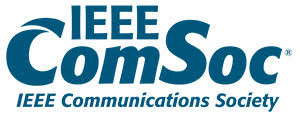CSIM Online Seminar with Prof. Shiwen Mao, Auburn University, on September 21st 2021
Dear CSIM Members,
It is my pleasure to announce that Prof. Shiwen Mao was our speaker at CSIM Online Seminars on September 21st 2021, at 10:30 EST.
Please find below content information of this most interesting seminar.
Best regards,
Nizar Zorba,
CSIM chair
Speaker: Shiwen Mao.
Professor and Earle C. Williams Eminent Scholar Chair. Director of the Wireless Engineering Research and Education Center | Auburn University, USA. IEEE Fellow.
Seminar Title: Vision-aided 3D Human Pose Estimation with RFID: Design, Implementation, and Generalization
Content (Video recording): Please find the seminar recording in https://youtu.be/LQEMPlCqLRE
Brief Abstract: To In recent years, 3D human pose tracking has become an important topic in computer vision (CV). It is a more challenging problem than classification problems such as human activity recognition, and is the enabler of many human-computer interaction (HCI) applications. To improve the privacy of human pose tracking, there is considerable interest in techniques without using a video camera. To this end, RFID tags, as a low-cost wearable sensor, provide an effective solution for 3D human pose tracking. In this talk, we first present RFID-Pose, a vision-aided realtime 3D human pose estimation system based on deep learning. The RFID phase data is calibrated to effectively mitigate the severe phase distortion, and High Accuracy Low Rank Tensor Completion (HaLRTC) is employed to impute missing RFID samples. The system then estimates the spatial rotation angle of each human limb, and utilizes the rotation angles to reconstruct human pose in realtime with the forward kinematic technique. The second part of this talk addresses the user adaptation problem, when a well-trained system is used to monitor the 3D pose of a new subject. We propose Cycle-Pose, a user-adaptive realtime 3D human pose estimation system. A cycle kinematic network is proposed to remove the restriction in pairing RFID and vision data for training. The resulting system is user-adaptive, achieved by learning to transform the RFID data into a human skeleton for different subjects. The third part of this talk addresses the environment adaptation problem, when a well-trained system is applied in a new environment. Meta-learning, as an effective technique to improve the model adaptability, is leveraged as a promising solution to the generalization problem. We develop an RFID based pose estimation system, termed Meta-Pose, which is based on the meta-learning framework to address the generalization problem. The three systems are prototyped with commodity RFID devices and validated with extensive experiments, where high pose estimation accuracy and realtime operation are demonstrated.
Short biography: SHIWEN MAO received his Ph.D. in electrical engineering from Polytechnic University, Brooklyn, NY in 2004. He joined the Department of Electrical and Computer Engineering, Auburn University, Auburn, AL in 2006, and held the McWane Endowed Professorship from 2012 to 2015 and the Samuel Ginn Endowed Professorship from 2015 to 2020. Currently, he is a professor and Earle C. Williams Eminent Scholar Chair, and Director of the Wireless Engineering Research and Education Center at Auburn University. His research interest includes wireless networks, multimedia communications, and smart grid. He is on the editorial board of IEEE/CIC China Communications, IEEE Transactions on Wireless Communications, IEEE Internet of Things Journal, IEEE Open Journal of the Communications Society, ACM GetMobile, an IEEE Transactions on Cognitive Communications and Networking, IEEE Transactions on Network Science and Engineering, IEEE Transactions on Mobile Computing, IEEE Multimedia, IEEE Network, and IEEE Networking Letters. He is a Distinguished Lecturer of IEEE Communications Society and IEEE Council of RFID, and a Distinguished Speaker of IEEE Vehicular Technology Society. He received the IEEE TC-CSR Distinguished Technical Achievement Award in 2019 and NSF CAREER Award in 2010. He is a co-recipient of the 2021 IEEE Communications Society Outstanding Paper Award, the IEEE Vehicular Technology Society 2020 Jack Neubauer Memorial Award, the IEEE MMTC 2018 Best Journal Award and 2017 Best Conference Paper Award, the 2004 IEEE Communications Society Leonard G. Abraham Prize in the Field of Communications Systems, and several best paper/demo awards from IEEE conferences. He is a Fellow of the IEEE.

